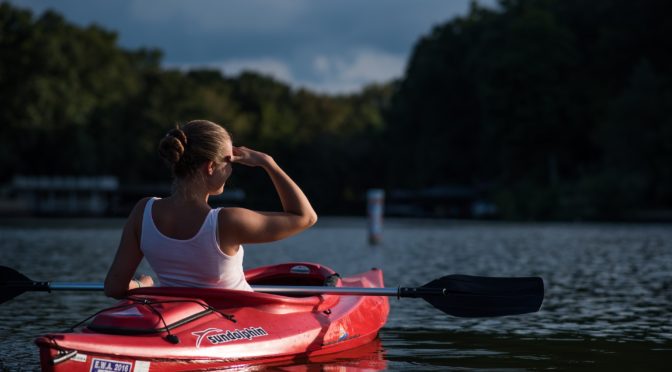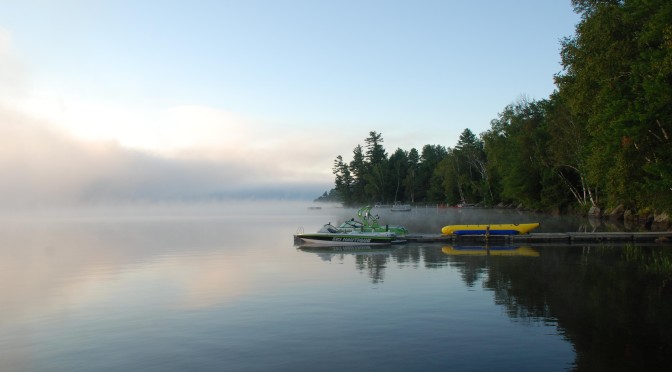The new line of 2017 EZ Dock products is making a big splash this year. Whether your dock is already in place, or you’re still making plans to get your system installed, these two new add-on options are great for personalizing your waterfront property. Build the dock that matches your needs and interests with one of these fantastic setups!
These new dock systems are perfect for rowing and kayak enthusiasts. The special designs give you easier access to the water and work seamlessly with both residential and commercial docks. And just like everything in the EZ Dock brand, the new products are all about versatility.
Low Profile Dock
We’re now offering installation services for the new Low Profile Dock from EZ Dock. This is an ideal match for waterfront properties that want easy access for their fishing, swimming, boating and rowing adventures. Because the freeboard planks float even closer to the water, it’s the perfect platform for entering your boat safely and conveniently. Or you can use it as a regular dock for just jumping right in to the water!
- New Low Profile Dock
- Low Maintenance & Great Stability
- High Load Capacity for multiple launches (on both sides)
- Compatible with traditional docks and standard EZ Dock systems
- Modular Design for multiple applications
This new addition to the EZ Dock product line is also known as their Rowing Dock. With its shallow height and durability, this modular system is the perfect dock for recreational and competitive rowers. These low-profile docks even exceed the US Rowing standards, as well as the International Rowing Federation (FISA) standards. With this setup, you’ll know you’re getting great quality for rowers of every level!
You can even reconfigured your design if you need to change locations or move the dock for upcoming events. The versatile construction with EZ Dock products helps you create the systems that’s perfect for your waterfront. We’re excited to help our clients set up these unique systems!
Canoe & Kayak Launch
The release of the new Kayak Launch from EZ Dock is great for lots of small boat types. This sleek design makes it easier than ever to enter and exit your kayak or canoe. Even as water levels rise and fall, the floating platform on this launch give you comfortable access to your favorite water activities. Guard rails for safety and convenient launch rollers will help get you out on the water in no time.
- New Canoe & Kayak Launch
- Guide rails for safe access in and out of boat
- Launch rollers to help move watercraft
- Floating Platform fits with Standard EZ Dock systems
- Universal Access Features
Whether you want a kayak launch for your private property or a commercial site, these new design features will make boating fun and even more approachable. Secure railings and a unique Accessible Transfer System provide top of the line safety and assistance to users of all levels. A transfer bench and slide boards even allow users to enter their boat while sitting. It’s a more comfortable transfer, and the system even surpasses the minimum requirements outlined by the Americans with Disabilities Act (ADA).
You can also pair the EZ Launch Accessible Transfer System with this kayak launch. A transfer bench with two heights helps ease the transition from a wheelchair to the boat, and the slide boards come with two different heights to accommodate varying watercraft sizes. (For more information on these features, check out the product video from EZ Dock.)
Get the Upgrade!
Updating your current dock setup or preparing to install your floating dock is a breeze when you have the right contractors. Contact Deaton’s Waterfront Services today to learn more about these new 2017 products from EZ Dock. We’re always available for consultations and look forward to telling you more about the best docking system for your active lifestyle.


